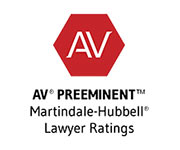February 13th, 2023
FREE RANGE (IN THE MEDICAL PROFESSION) a Book Review by Jim Vogele
Range by David Epstein (Publisher: Riverhead Books) 2019, ISBN 978-1-5098-4350-3
Introduction
David Epstein’s 2019 book, Range, How Generalists Triumph in a Specialized World, evidences the author’s continuing interest in high performance — in sports, academics, science, business and all facets of life.
In Epstein’s previous book, The Sports Gene, Inside the Science of Extraordinary Athletic Performance, he explored the question of what characteristics or origin stories underlie the performance of great athletes. Probing the “nature or nurture” debate as it relates to athletes, The Sports Gene explored those topics and other common elements in the backgrounds of highly-successful athletes. It wouldn’t give away too much to note that both nature and nurture are in play, along with many intriguing details in specific sports – baseball players often have great eyesight, i.e. hitting is not just a product of elite reflexes; successful basketball players often have remarkable wingspans that are disproportionate to their equally lofty height; great swimmers, on the other hand, may be likely to have shorter legs than expected for their height, e.g. Michael Phelps, who at 6 feet 4 inches tall apparently has the 32 inch inseam of a much shorter person, which happens to be a great physique for swimming fast!
One cannot make a case that the subject matter of Range is directly related to California physician contracts. Or that Epstein’s book provides one with a greater understanding of Washington physician contracts (nor of Montana physician contracts, Oregon physician contracts, or physician contracts in general). I will note, however, that in my recent work with a California physician contract client, I noticed a remarkable scope of diverse background interests and pursuits in a training institution’s biographies of residents. And I have noted the same with my Oregon, Montana, and Washington physician contract clients. For such busy folks, physicians are often well-rounded individuals with a diverse range of interests and backgrounds.
According to Range, in many areas of life, diverse backgrounds are a plus. As Epstein writes:
“We all specialize to one degree or another, at some point or other. My initial spark of interest in this topic came from reading viral articles and watching conference keynotes that offered early hyper-specialization as some sort of life hack, a prescription that will save you the wasted time of diverse experience and experimentation. I hope I have added ideas to that discussion, because research in myriad areas suggests that mental meandering and personal experimentation are sources of power, and head starts are overrated. As Supreme Court justice Oliver Wendell Holmes wrote a century ago, of the free exchange of ideas, ‘It is an experiment, as all life is an experiment.’”
A Wide Range
Note that on the cover of my copy of Range, is an encouraging blurb from Malcolm Gladwell: “Makes me thoroughly enjoy the experience of being told that everything I thought about something was wrong. I loved Range.”
Indeed, if you are a fan of Malcolm Gladwell and his books such as Outlier, Blink, or Tipping Point, you are likely to find Range to be of interest. Each of these books contains plenty of examples of how decisions are made and that is an important element of Epstein’s recent book, which highlights diverse background experiences leading to better decision-making processes in many different disciplines. At the other end of the spectrum are examples of suboptimal decisions made by individuals with excellent yet highly specialized training.
Nor is Epstein’s insight limited to decision-making on specific projects. For example, people seem likely to make better career choices when they have entertained many different career paths. This may seem like an obvious point, but, if you are contemplating a Montana physician contract or a Washington physician contract, you have likely been exposed to a variety of potential areas of specialty in rotations during your education. And the ultimate match quality of your career choice may be better if you did not know all along, since your undergraduate days, what your medical specialty or area of practice would be. According to the thesis of Range, the rotations process should make it much more likely that you choose wisely when it comes to your career. Which is sort of the purpose of your tireless (tiring?) effort and work after all, right?
In any event, time in school is almost never wasted, according to Range:
“Approach your own personal voyage and projects like Michelangelo approached a block of marble, willing to learn and adjust as you go, and even to abandon a previous goal and change directions entirely should the need arise. Research on creators in domains from technological innovation to comic books shows that a diverse group of specialists cannot fully replace the contributions of broad individuals. Even when you move on from an area of work or an entire domain, that experience is not wasted.”
Kind Versus Wicked Learning Environments
Throughout Range, Epstein contrasts early specialization with wide-ranging training and educational pursuits. In some endeavors, e.g. golf, chess, and classical music, the importance of early hyper-specialization has long been recognized. But in many other areas, individuals lacking a head-start in honing their skills end up doing just fine and sometimes perform better than the early starters.
For two examples in athletics, Epstein compares Tiger Woods and Roger Federer. Many if not most Americans know the Tiger Woods story, which is truly an astonishing example of precocious ability enhanced by early and intense specialization and practice. On the other hand, the tennis great Roger Federer tried many different sports before he settled upon his career choice. Despite not pursuing tennis exclusively in his early years he became one of the greatest tennis players in history. Indeed, Federer is a prime example of how wide ranging experiences can work to one’s advantage. Epstein explains that: “As a boy [Federer] played squash with his father on Sundays. He played basketball, handball, tennis, table tennis, badminton over his neighbor’s fence, and soccer at school. He would give credit to the wide range of sports he played for helping him develop his athleticism and hand-eye coordination. He found that the sport didn’t really matter so much, so long as it included a ball.”
Epstein concludes that:
“While it is undoubtedly true that there are areas that require individuals with Tiger’s precocity and clarity of purpose, as complexity increases – as technology spins the world into vaster webs of interconnected systems in which each individual only sees a small part – we also need more Rogers: people who start broad and embrace diverse experiences and perspectives while they progress. People with range.”
Epstein further explains the two kinds of decision-making domains, starting with “kind” domains:
“There are domains beyond chess in which massive amounts of narrow practice makes for grandmaster-like intuition. Like golfers, surgeons improve with repetition of the same procedure. Accountants and bridge and poker players develop accurate intuition through repetitive experience. Kahneman pointed to these domains ‘robust statistical regularities.’ But when the rules are altered just slightly, it makes experts appear to have traded flexibility for narrow skill.”
And Epstein contrasts the kind domains of chess and golf with “wicked” domains:
“In wicked domains, the rules of the game are often unclear or incomplete, there may or may not be repetitive patterns and they may not be obvious, and feedback is often delayed, inaccurate, or both . . . . Expert firefighters, when faced with a new situation, like a fire in a skyscraper, can find themselves suddenly deprived of the intuition formed in years of house fires, and prone to poor decisions.”
Range provides many fascinating examples of decision-making and performance in the real world as well as in a narrow or a closed environment context. In a chapter of Range entitled, “Learning to Drop Your Familiar Tools,” Epstein discusses the background decision-making process preceding the disastrous space shuttle Challenger launch, when the clash of specialists and generalists played out in tragic fashion. As stated there, “[C]ultures can actually be too internally consistent.”
Epstein writes that, “The Challenger managers made mistakes of conformity. They stuck the usual tools in the face of an unusual challenge.” In grossly simplified terms, the issue with the Challenger launch related to signs that there could be problems with the equipment, yet the culture of NASA made it extremely difficult to challenge a consensus decision, especially if higher-level managers had become invested in a particular course of action.
Another interesting example involves wildland firefighters, who develop a powerful connection to their firefighting tools, despite being instructed to leave them behind when ordered to do so. If things go terribly wrong, wildland firefighters who do not drop heavy chainsaws or packs are more likely to perish if the conflagration has become to dangerous to stay and fight.
For a fascinating example from the world of technology, read the story of Nintendo and Gunsei Yokoi in the “Lateral Thinking With Withered Technology” chapter of Range. When a technology appears to become outdated or irrelevant, creative thinkers may find uses for seemingly outdated, or “withered,” technology. Yokoi’s integration of ‘outdated’ technology, facilitated by his background as a tinkerer, lead to the development of some of Nintendo’s wildly successful gaming gadgetry. Game Boy’s inexpensive price point and the fact it could be fit into a large pocket, along with its durability and capability to run for days or even weeks on a couple AA batteries (as opposed to its “power-guzzling color competitors”) made it “far and away the bestselling console of the twentieth century.”
Django Reinhardt provides yet another fascinating example of Epstein’s thesis. Reinhardt lost the use of his pinkie and ring fingers on one hand in a fire, yet due to his versatility he became perhaps the most important guitarist ever to play jazz (Epstein also notes that neither Django nor Les Paul, creator of the hard-body electric guitar, could read music).
Of note in the event that you are contemplating a California physician contract or a Washington physician contract (0r a Montana veterinarian employment contract or an Oregon dentist employment contract) is that Epstein emphasizes that if you need a particular type of surgery, then a surgical team that has done the same surgery many times is what you are looking for: “If you need to have surgery, you want a doctor who has specialized in the procedure and has done it many times, preferably with the same team, just as you would want Tiger Woods to step in if your life was on the line for a ten-foot putt.”
But if you are looking for great decision-making skills in a wicked environment, early specialization is not required.
Match Quality and Physician Career Choices
As Epstein explains, “’Match quality’ is a term economists use to describe the degree of fit between the work someone does and who they are – their abilities and proclivities.”
Here we may be getting warmer in terms of Range’s relevance to Washington physician contracts, California physician contracts, Montana physician contracts, and Oregon physician contracts. And indeed, this is a website for health care practitioners who are considering physician employment contracts, whether in Oregon, Washington, California or Montana. But wide-ranging experience is something I have always believed benefits us all.
Why does one choose to be a internist, a pediatrician, a dermatologist, a psychiatrist, an orthopedic surgeon, or a thoracic surgeon? And when did you make that choice (or have you yet)? Given that this choice is often made in the second half of med school, physicians have had a good amount of time to consider match quality. “Many factors go into this decision, including your personal history, your clinical interests, your experience during rotations, the duration of the training involved and financial and lifestyle considerations.”
https://www.ama-assn.org/medical-students/specialty-profiles/choosing-physician-specialty
As the AMA notes, “One of the most important decisions you will make during medical school is which specialty to choose.” The AMA’s emphasis on this important decision is not surprising. As an attorney, who long ago had to make a career choice, I understand that match quality can be elusive. It is not an exact science. Some decisions are easier than others, of course, particularly in excluding the more far-fetched options. If one is very short in physician stature, then becoming a lawyer or doctor is likely to be a better potential match quality than playing professional basketball, although there have been many sub-6 foot NBA players. Spud Webb, at 5 feet 6 inches tall, once won the NBA Slam Dunk Contest. But, from a match quality standpoint, Spud is an outlier (to use Malcolm Gladwell terminology).
The wicked issue with careers, or medical specialties, however, is that there are countless valid choices. Nonetheless, if you are closer to seven feet than six feet tall, with an outsized wingspan and a strong desire and serious work ethic, then a career in basketball might be an option. I, for one, had a mother who assured me, “You can do anything you want.” And this is a great thing to hear from your mother, of course, but if you are obsessed with basketball, and you eventually reach no more than a towering ‘almost 5 feet 10 inches,’ like me, then “anything” doesn’t necessarily include becoming a professional basketball player. While I became as expert as I could at basketball, and had approximately one glory year, early in high school, it wasn’t until a few years later that I realized . . . I am no Spud Webb; and that whatever talent I have, it is probably better exercised with a book, and not a basketball, in my hands.
The time one has to decide upon a specialty can be an advantage in terms of match quality. A flipside to this ‘advantage,’ of course, is that it takes a dauntingly long time period of education to become a physician. But if you are reviewing a California physician contract, a Washington physician contract, an Oregon physician contract, or a Montana physician contract, then you certainly have prepared long and hard and have a rewarding career ahead of you. One in which we would like to see you doing well by doing good.
I am biased because I work with so many fine young physicians, but I remain highly optimistic about the future of healthcare, even as there are, yes, many challenges and developments that will inevitably result in continued and even more tension between bean counters and practitioners. Yet the physicians I work with are constantly intelligent, articulate, and appreciative. Not to be pollyannish, of course; I understand that there will be financial pressures as your career moves forward, both professional (private equity, anyone?) and personal (student loans, anyone?). But young physicians are the future of healthcare, and I am honored to help you understand your physician employment contracts and to position yourself as best as possible for a fair and rewarding employment relationship.
Conclusion
I hope that the book reviews on this website are of some interest to doctors and other healthcare practitioners of all kinds with employment contracts to consider. Whether newly-minted or with many years of practice under your belt, I’m always happy to provide consultations and advice concerning your physician employment contract for positions in Oregon, Washington, California and Montana.
Range doesn’t seem like a perfect fit for a website devoted to physician contracts, yet one of the useful lessons to be learned from this book is that bringing a wide “range” of experiences and backgrounds to almost any real world problem is likely to lead to better decision-making. Perhaps this is not so if you need heart surgery or if all the marbles come down to a 10-foot put on the golf course. But in a wicked environment (and heart surgery for anyone but an expert would be more than wicked), where tough decisions lacking clear answers are at stake, bring the experience, and the more you bring the better. I will continue to review some books that are directly, squarely relevant to the practice of medicine and to physician employment contracts. Having said that, I will also include the somewhat random smart read from fields far and wide. I’m a convert to Range.



